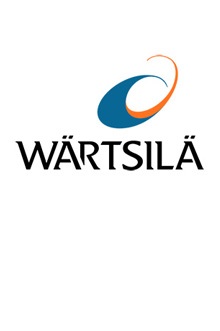

South Africa's energy landscape is currently challenged by ageing coal-fired power stations and load shedding. To avoid risking the entire power system, power companies are forced to reduce consumption by switching off the electricity supply to groups of customers. This is a crisis, while at the same time providing short-, medium- and long-term opportunities. In the broadest sense, the country now has a chance to leapfrog from the coal era to the new energy technologies of the 21st century. This is an opportunity to create new economic activity – and it must be accompanied by skills development.
Short-term: mitigating risks with flexible technologies
The immediate opportunity is provided by a governmental independent power procurement programme initiated by the Department of Mineral Resource and Energy. The current power shortage is addressed by the Risk Mitigation Independent Power Procurement Programme (RMIPP), launched in August 2020. The government will procure from multiple locations and technologies 2 GW of energy, to be operational by the end of 2022. These projects must meet specific flexible dispatch criteria.
This is a new, innovative direction in the country’s power procurement, since it addresses the system operator's needs and moves away from discussions over specific technologies. Bidders were able to offer the most effective technologies for meeting the dispatch criteria. There is no cap on prices. The priority is risk mitigation. Flexible technologies will be far cheaper than the current alternative, which is based on using diesel fuel. Nevertheless, they will be more expensive than the artificially priced coal-fired power, which currently provides most of the country's electricity requirements. Flexible technologies also enable South Africa's cheapest form of energy, which is renewables.
“Based on the bid evaluation, we expect that 5 to 15 different projects will be built in locations around South Africa. This represents a major shift away from mega-coal projects and towards distributed and hybrid multiple technologies,” says Wayne Glossop, Business Development Manager, Africa East & South at Wärtsilä Energy.
“The RMIPPP aligns with Wärtsilä’s area of expertise, which is flexible technologies including gas, internal combustion engines, and energy storage, so we hope to play a prominent role in these projects. The decision on the bidders can become a benchmark for future power programmes in South Africa, and the market should be allowed to choose the best technology to meet the system operator's requirements,” he continues.
Medium-term: leapfrogging from coal to new technologies
In the medium term, there are obvious opportunities in repurposing old coal power stations, not necessarily to convert them to gas or other thermal power - but to take a multi-technology approach. In replacing old coal-fired power generating Eskom, the public electricity utility in South Africa, is interested in also creating new economic activity and jobs that new technologies would bring along. “Wärtsilä is a significant investor in research and development, and we take social responsibility seriously. Alternative green technologies and education can be combined to bring new economic activity and welfare to the location,” says Glossop.
Eskom has expressed its interest in establishing a technology innovation centre at one of the coal plants. This would incorporate elements of the existing technology, while also looking at future energy systems, with a focus on green technology developments.
Long term: advancing green technologies and developing skills
South Africa's energy sector is moving towards greener technologies – and it includes hydrogen, which is a new and exciting field for the country. In this context, Wärtsilä has earlier put considerable effort into advancing South Africa’s marine industry, having implemented a number of installations on different vessels sailing South African waters. Furthermore, Wärtsilä has also been involved for many years with Nelson Mandela Metropolitan University’s (NMMU’s) marine engineering programmes. “We now plan to deepen this relationship to include the energy sector with both NMMU and Wits University in Johannesburg. Wärtsilä is experienced in modelling power systems in different countries, and this would form a natural starting point for university collaboration in South Africa, too,“ says Tord Johnsson, General Manager, Strategic Relations and Business, South & East Africa. “Universities are close collaboration partners for Wärtsilä. We have had a global energy talent programme, under which we recruit and train graduates from various countries, for many years already. South Africans will be brought into the programme in 2021,” he continues.
To advance its transformation programme in South Africa, Wärtsilä has created a new black ownership trust to support final-year black engineering students at NMMU, and to oversee the company’s corporate social investments. One of the goals is to bring more women into the energy sector.
Wärtsilä has increased its South African supply chain investment, as the RMIPP programme has requirements for black ownership, preferential procurement, and local content. Efforts are being made to increasingly use local suppliers and employ local sub-contractors for civil, mechanical, and electrical engineering, while global suppliers are also encouraged to increase local content sourcing in South Africa. All this must be accompanied by skills development activities. South Africa has an Integrated Resource Plan (IRP), which provides a vision for the country's energy sector and electricity needs. In future years, several energy projects will be secured under the IRP, which will require a skilled staff pipeline.
“Naturally, the number of jobs which can be created depends on how successful we are in our bids. Jobs generated by RMIPP projects would be in either the construction or operation of power plants. Between 200 and 250 full-time jobs could be created. Additional employment would be needed within the sub-contractors’ and suppliers’ pool,” Tord Johnsson says.
“As Wärtsilä grows in South Africa, we are in a good position to show tangible benefits for the country's energy mix, environmental contribution, and technical skills levels,” Johnsson concludes.




